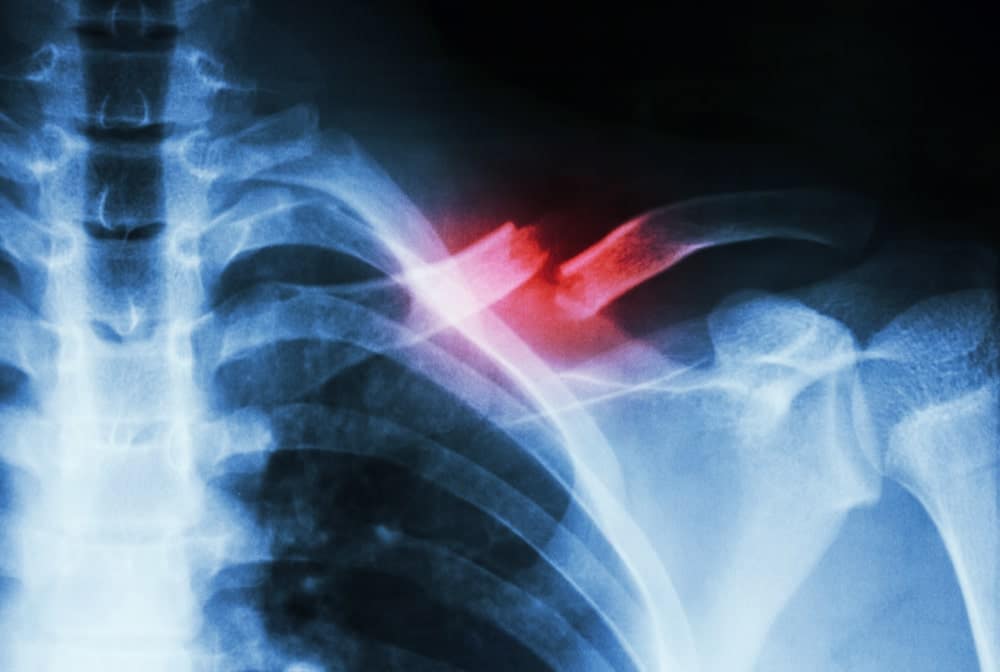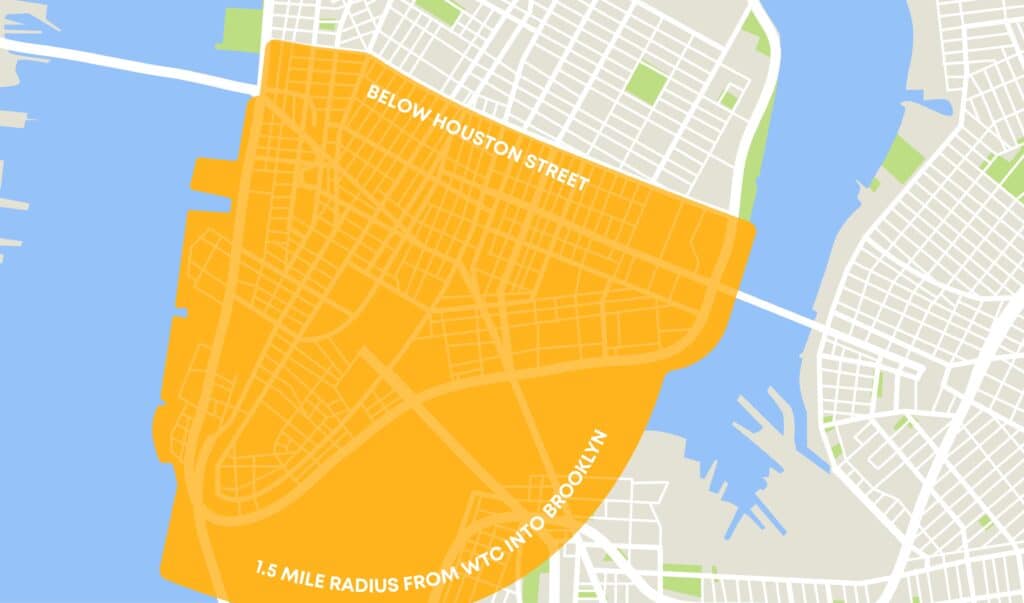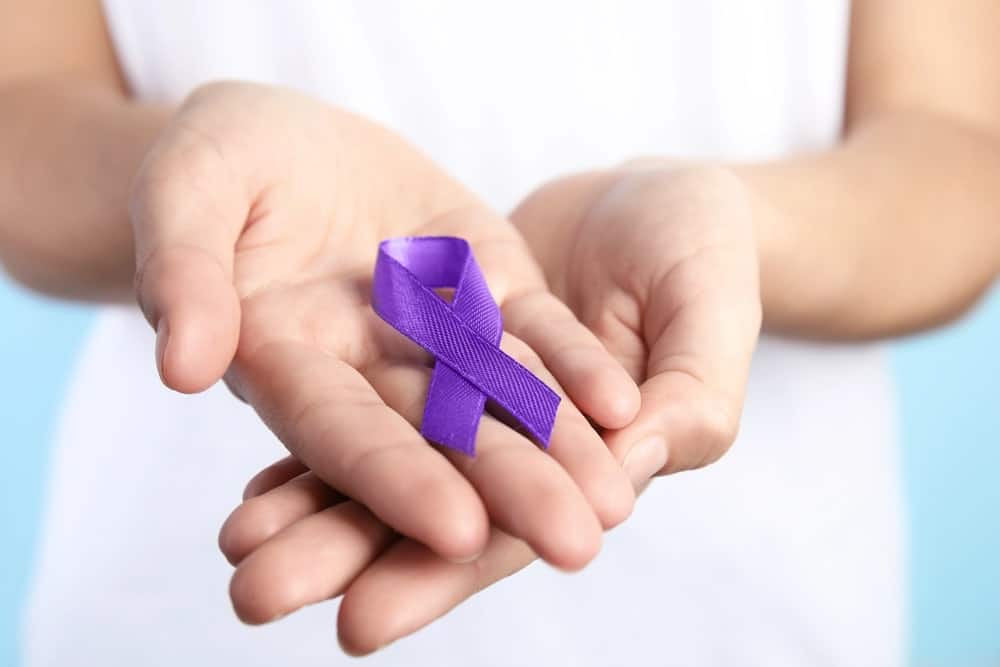
In recent years, considerable attention has understandably focused on the many 9/11-related chronic health conditions, such as multiple types of cancers, lung and breathing conditions, and digestive disorders.
In addition to these serious conditions, many victims suffered acute traumatic injuries in the direct aftermath of the attacks and during the recovery and cleanup period that followed. These have had life-changing consequences for many, too.
Let us learn more about acute traumatic injuries and how to claim free medical care and compensation for the pain and suffering caused—if victims have not already done so.
What are acute traumatic injuries?
Searching for survivors during the recovery period after September 11 was harrowing and dangerous work. Responders and volunteers were incredibly brave and heroic in dealing with the hazardous conditions at Ground Zero.
As they did so, they witnessed many of their colleagues suffer traumatic injuries from slips and falls from heights, falling debris, burning materials, explosions, hazardous chemicals, contaminated air, and more.
Acute traumatic injuries cause physical damage to the body. In the context of 9/11, many responders and survivors experienced the following types of injuries:
- Eye injuries
- Severe burns
- Head trauma
- Bone fractures
- Soft tissue injuries, such as tendon tears and complex sprains
Better understanding 9/11 acute injury claims
To be eligible for free medical care with the World Trade Center Health Program (WTCHP) and for compensation from the Victims Compensation Fund (VCF), victims’ injuries must have been caused by exposure to hazards or adverse conditions resulting from the September 11 attacks.
Acute traumatic injuries sustained during recovery were, in fact, one of the principal reasons for the establishment of the initial programs to provide care for injured responders and survivors involved with the recovery effort and who helped NYC return to normal after the attacks.
These programs were later adjusted to also look after the thousands of individuals suffering from chronic conditions related to exposure to the toxic 9/11 dust cloud that enveloped the Lower Manhattan area for many months after the attacks.
Complications related to acute traumatic injuries
One of the unfortunate truths with acute traumatic injuries is that if they are left untreated, they can develop into chronic conditions. For instance, head trauma may lead to a traumatic brain injury, burns may become infected, and even a torn tendon left untreated can lead to chronic mobility issues.
Traumatic injuries require diagnosis as early as possible by qualified medical professionals, followed by a course of recommended treatment. This process varies from one type of injury to another.
Many individuals are still suffering from acute traumatic injuries (and complications) that were untreated all those years ago during the recovery and cleanup efforts. It may not, however, be too late to claim free medical care and compensation for these injuries. Speak with a qualified 9/11 victim claims attorney to better understand your rights and claim options.
Traumatic brain injuries linked to 9/11
Head trauma and traumatic brain injuries are serious head injuries that usually result from a blow to the head by an object.
Depending on the force involved in the impact, whether the skull is pierced, and whether the brain strikes the skull bone, a range of different symptoms may develop for head trauma victims. These include:
- Loss of consciousness
- Confusion/cognitive difficulties
- Dizziness or balance problems
- Headaches
- Ringing in the ears or other hearing issues
- Vomiting
- Lethargy
- Difficulties with speech
- Paralysis
- Numbness/tingling
These symptoms can lead to serious complications, like bleeding on the brain, blood clots or coma that require urgent medical attention to prevent potentially fatal consequences.
Traumatic eye injuries linked to 9/11
Another common type of acute traumatic injury linked to 9/11 is eye injuries. These can be of varying degrees but, in the worst cases, lead to the complete loss of vision or the removal of an eye.
Typically, responders and volunteers suffered eye injuries from falling debris (some of it sharp and hazardous) from buildings, dust and debris in the air, and from fires and explosions. This led to swelling in the eye, swollen eyelids, bruising around the eye, bleeding or traumatic inflammation.
Eye irritation from the toxic dust cloud that was present in the weeks and months after September 11 is another common eye injury, often starting as an acute injury but developing into a chronic condition for victims.
Burn injuries linked to 9/11
The attacks on 9/11 ignited many fires that burned for up to 100 days. These fires made the recovery and cleanup efforts even more challenging for responders and volunteers.
Acute burn injuries are highly traumatic and can even be fatal. Hospitalization in a special burns unit may be required. However, some individuals who suffered burns did not get them treated by medical professionals, leading to complications.
- First-degree burns of the skin are the least serious.
- Deeper second-degree burns are found in the middle layer of the skin.
- Third-degree burns are the most severe, impacting all layers of the skin and destroying nerve endings, hair follicles, and sweat glands—and sometimes even damaging muscles.
Possible complications from burns include dehydration, shock, infection, and tightening of the skin (resulting in the loss of healthy skin tissue).
Fractures and sprains linked to 9/11
Most fractured bones and sprained joints usually heal with the right treatment but, if left untreated, these acute traumatic injuries can result in severe mobility issues. Many responders and volunteers experienced sprains involving swelling, tenderness, bruising, or restricted use of a limb—and not all received the appropriate treatment.
Traumatic tendon tears were another common injury from 9/11, resulting in similar symptoms to broken and fractured bones and sometimes requiring surgery.
Open fractures are difficult to miss. It is clear that they require medical attention. Failure to do so can lead to serious infections and other complications, such as chronic pain, arthritis, and nerve damage.
If you or a loved one suffered an acute traumatic injury on or after September 11, 2001, contact a seasoned 9/11 attorney to check your eligibility for benefits under the Victim Compensation Fund.
To discuss your situation and learn more about how we may be able to help you, please call Weisfuse & Weisfuse, LLP at 212-983-3000 or contact us online to schedule a free consultation.






